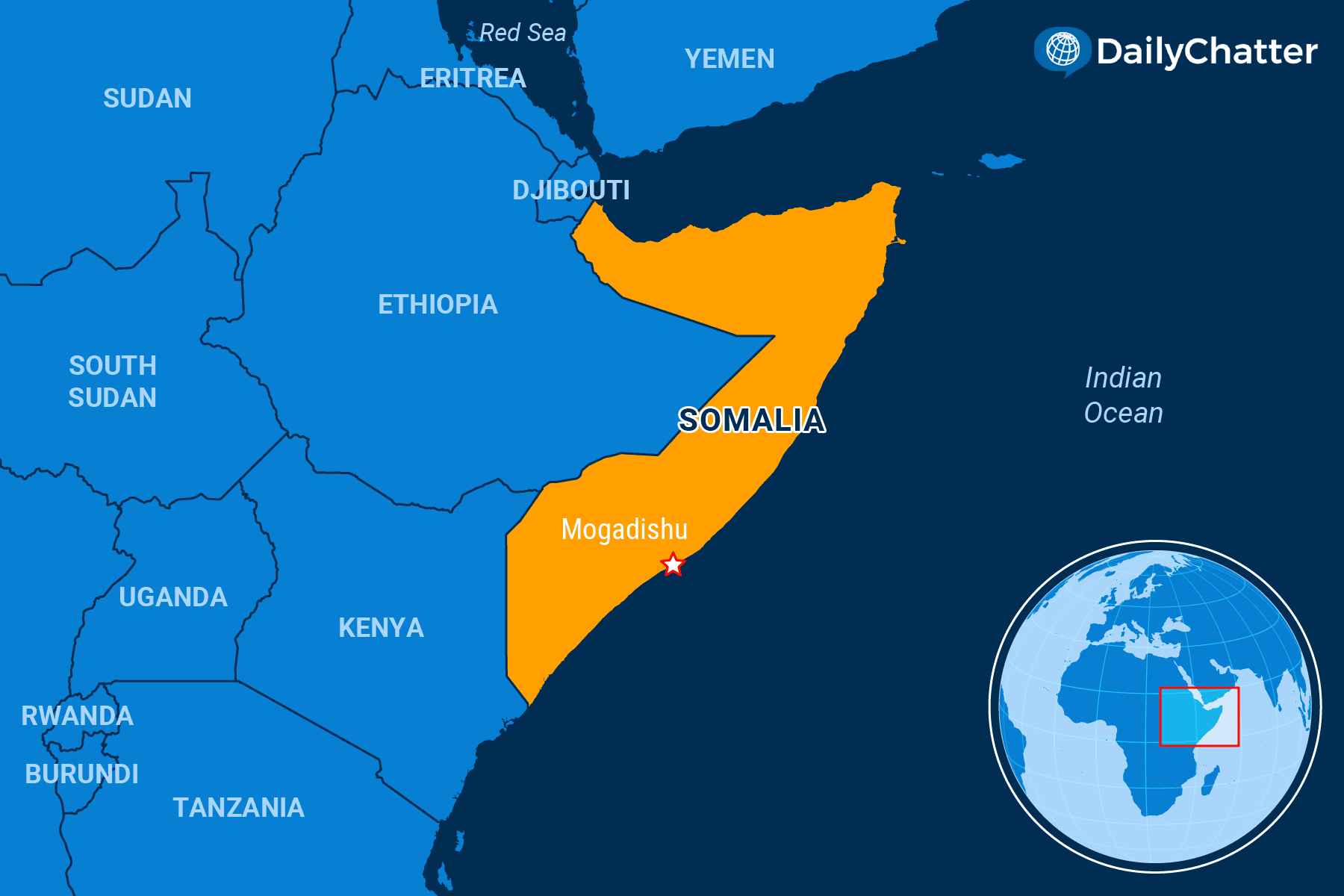Need to Know
November 02, 2023Books and Bombs
Somalia

|
Listen to Today's Edition
|
A locally filmed, 10-part television series about Mogadishu high school students called “Arday” hit the Somali airwaves earlier this year, the Washington Post reported. A book fair, newly opened theaters, and art exhibitions have also cultivated a new Somali culture of arts and entertainment.
This art scene is flourishing in Mogadishu, the capital of war-torn Somalia, in defiance of Islamist militants roaming freely throughout the countryside, occasionally making it to town to set off bombs.
As the Council on Foreign Relations timeline showed, al-Shabab has terrorized Somalia since 2004, seizing Mogadishu in 2006. Ethiopia, Kenya, the US, the United Nations and others became embroiled in the conflict as Somalia collapsed into civil war. In 2011, African Union forces finally ousted al-Shabab from the city – but al-Shabab insurgents are still active in more remote areas, controlling vast areas of the country.
For example, an al-Shabab suicide bomber drove an armored car carrying a bomb into a police post outside Mogadishu on Oct. 21, killing six security officers and injuring seven others, reported Voice of America. The attack came less than a week after another al-Shabab suicide bomber killed a prominent Somali television journalist.
The next day, the US offered $5 million to anyone who could provide information on the whereabouts of al-Shabab’s deputy leader, Abukar Ali Adan.
Whether books or bombs will prevail in Somalia is an open question. As the Carnegie Endowment for International Peace explained, al-Shabab’s robustness has made it difficult for Somalia to move on as a nation. Without moving on, however, Somali officials can’t properly rebuild their economy to generate jobs that would keep Somali youth from becoming extremists.
Famine is a constant threat in Somalia. The country has been highly dependent on international aid for so long that corrupt or inefficient economies have developed around it, the New Humanitarian noted. The pandemic and climate change-driven shocks have seriously undercut the economy, too, added Africa News. Drought has become a dire problem – again – threatening food stocks and livelihoods.
The government’s earnest peace efforts, meanwhile, have fizzled. The government in Mogadishu, for instance, offered all al-Shabab an amnesty in 2014. The militants rejected the offer, preferring to fight and die rather than accept anything but theocracy.
Now, after Somali President Hassan Sheikh Mohamud assumed office last year after pledging all-out war against al-Shabab, the Somali army is taking the fight to the group in the field, wrote Garowe Online, an independent news site located in the Somali region of Puntland. The army recently claimed to have killed 3,000 insurgents in central Somalia.
President Mohamud is just one of many Somalis who are ready to move on. Unfortunately, that’s difficult to do.
Not already a subscriber?
If you would like to receive DailyChatter directly to your inbox each morning, subscribe below with a free two-week trial.
Support journalism that’s independent, non-partisan, and fair.
If you are a student or faculty with a valid school email, you can sign up for a FREE student subscription or faculty subscription.
Questions? Write to us at hello@dailychatter.com.

